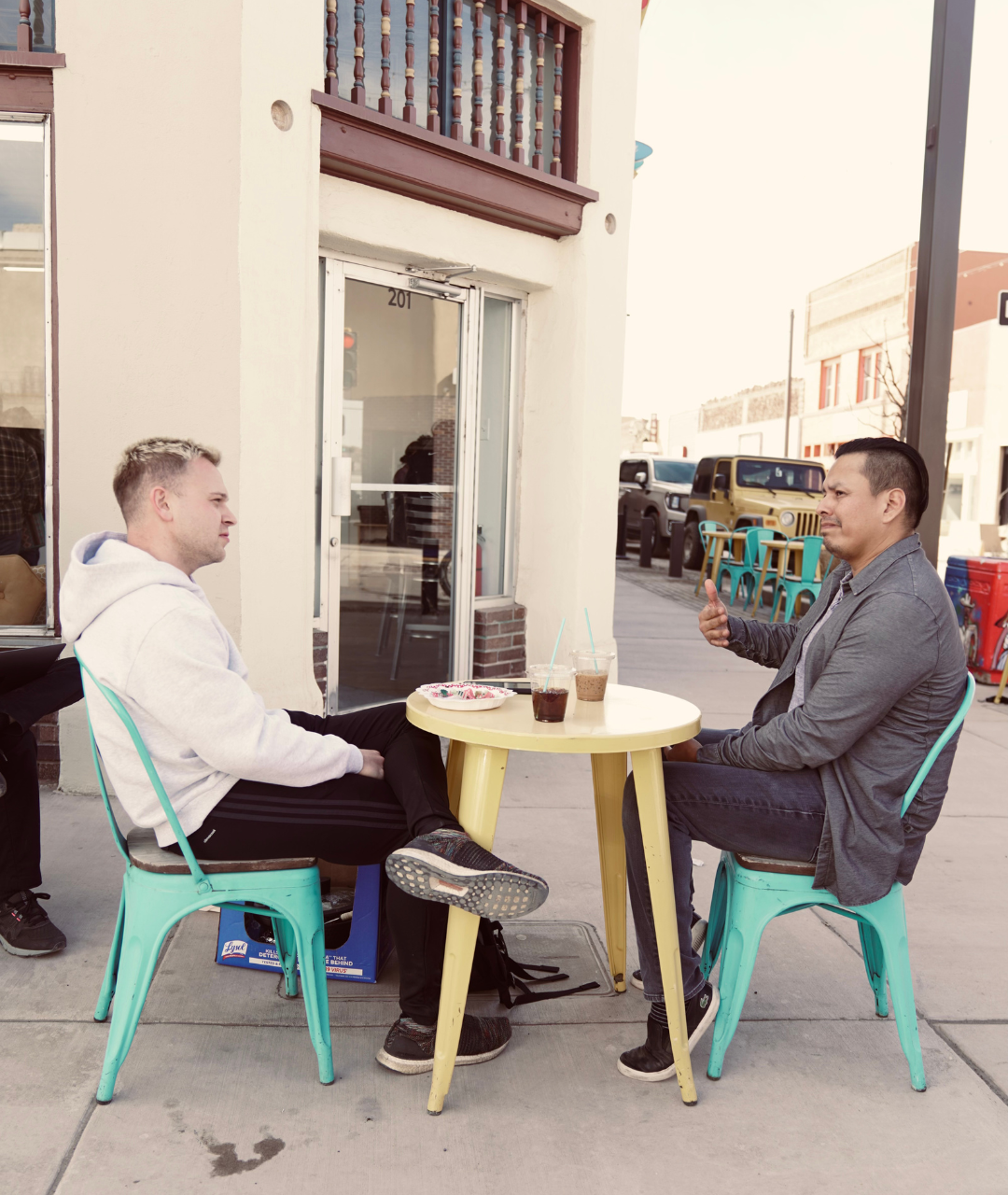
Jeremiah Bitsui - Curious Conversations
Jeremiah Bitsui forged a career as an entrepreneur at a young age primarily in two industries; development/construction and entertainment. His love for cinema found him on the set of Oliver Stone’s Natural Born Killers playing alongside his Uncle Russell Means. Freshman year in college he incorporated his first business - a soft skill based program working Nationally in Urban and Tribal communities. Post college his love for film rekindled on the set of A Thousand Roads, as lead Johnny Chee, and premiered at Sundance and perpetually shown at the National Museum of American Indian (NMAI- Smithsonian NYC and DC). His film career includes notable directors such as Clint Eastwood, Jim Sheraton, and Sydney Freeland’s breakout Drunktown’s Finest; most notably his enigmatic role as Victor three seasons of Breaking Bad and four seasons of Better Call Saul, rounding TV’s golden age; he also recurred in Bosch as Billy Harjo, and the fan favorite Yellowstone as Robert Long; most recently a season regular lead in Dark Winds as Hoski aka Father Tso; all while maintaining full ownership and CEO in an innovative construction management/project management company based in New Mexico and expanding to Atlanta, Georgia.
THE SECRET TO BREAKING INTO THE FILM INDUSTRY
Breaking into the world of TV and movie acting is very difficult. Even more difficult is breaking into the world of TV and movie acting as a Native American. Jeremiah Bitsui did both. I asked him if he found a secret to his success, he told me that this started with him not having role-models to look up to on the screen: “I knew I wanted to do this since I was five years old,” he said. “As a Native American you don’t have many icons to look up to. I wanted to play ninja roles because I thought they were so cool, and didn’t have anything else to identify with. And funny enough, one of my first productions when I was five years old was a Japanese production...”
I find Jeremiah’s story so endearing. Not having any role models makes him that much more of a trail blazer at what he does. He also told me that he considers it a “blessing” that he still gets to play so many roles. Luckily, and partly to his surprise, he hasn’t been stereotyped as a Native person into each role he gets.
THE ROLE OF RACE
I wondered what Jeremiah thought about the role of race in Hollywood. Jeremaih told me that he considers himself very lucky and respected, even before he made it big: “When I auditioned for the manager of Los Pollos Hermanos on Breaking Bad, the director didn’t seem too interested in me. During my whole audition he was on his phone, not looking at me. So I brushed it off and figured I didn’t get the part. But as I was about to drive away from the lot the casting director came out and slammed her hand down on my hood and asked if I could come back and read for another character. I went back in to read again and the director really liked what I was doing... So I guess he was paying attention the whole time... Anyway, I was very thankful.”
SELFLESSNESS
“I think being a great dad means being a great husband. They correspond. And I think being a good husband has to do with listening, selflessness, and realizing how much your partner actually does for you. I used to think ‘Oh I’ve been working hard I’m tired, where's my food? I want to go lay down.’ I started to realize that my wife was taking care of the kids, keeping up with business stuff, keeping the house in order, cleaning, and keeping it all running. She was actually working harder than me. It’s like getting rid of pride and ego. Having a partner takes some selflessness.”
I felt Jeremiah’s point so much. I’d had pride on my mind the last couple days leading up to the live show we did with Jeremiah, and it felt so opportune to hear him bring it up. It can be easy to get caught up in our own worlds feeling like we’re on the top of them - but in reality there is no one man show, on or off the screen.
THE POWER OF FORGIVENESS
Jeremiah shared with me one of his favorite stories about former gang member Johnny Chang, and the lesson it demonstrates about being willing to seek forgiveness: “Johnny was in a tough Chinese gang in California, and his minister had been talking to him about some of the rage and unrest that he carried from his childhood into adulthood. The minister discovered that Johnny had an unresolved falling-out with his father. ‘Why would I make peace with my father? He beat me since I was a toddler, he beat my mother until she was almost unconscious,’ Johnny said. But finally Johnny agreed to try to reconcile with his father, and convinced him out to dinner. When Johnny and his father were together, Johnny apologized to his father for not being a
better son and his father broke down crying, apologizing himself, holding most of the blame on his shoulders, having felt guilt all that time.”
Stories like this are so beautiful to me. No sin is too great to seek forgiveness. The potential for holiness in each of us is unbelievable, and you never really know what someone else is going through until you ask.
FAVORITE BOOKS
1. Heart of Darkness - Joseph Conrad
2. Can’t Hurt Me - David Goggins



